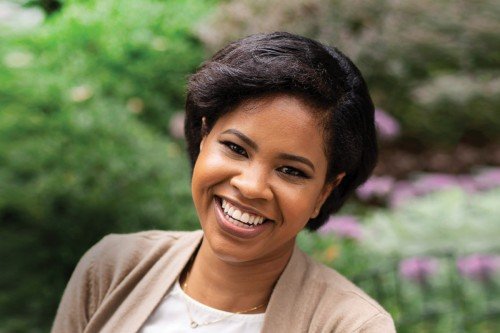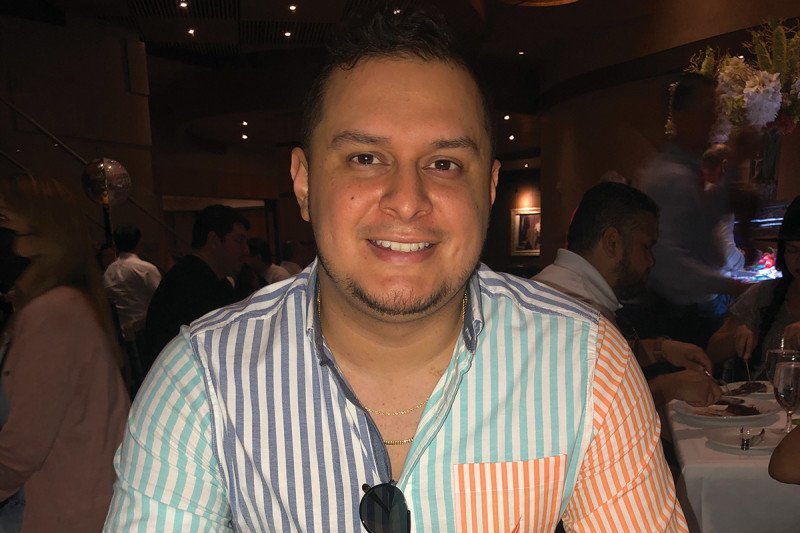
Irving Romero Torres recently celebrated his 30th birthday in New York City with his family. Photo Courtesy: Irving Romero Torres
When Irving Romero Torres learned that the cancer he’d been battling for three years had come back, he was “scared, really scared.” But he wasn’t defeated. “I didn’t hesitate to go back on treatment,” he says. “I was ready to fight again.”
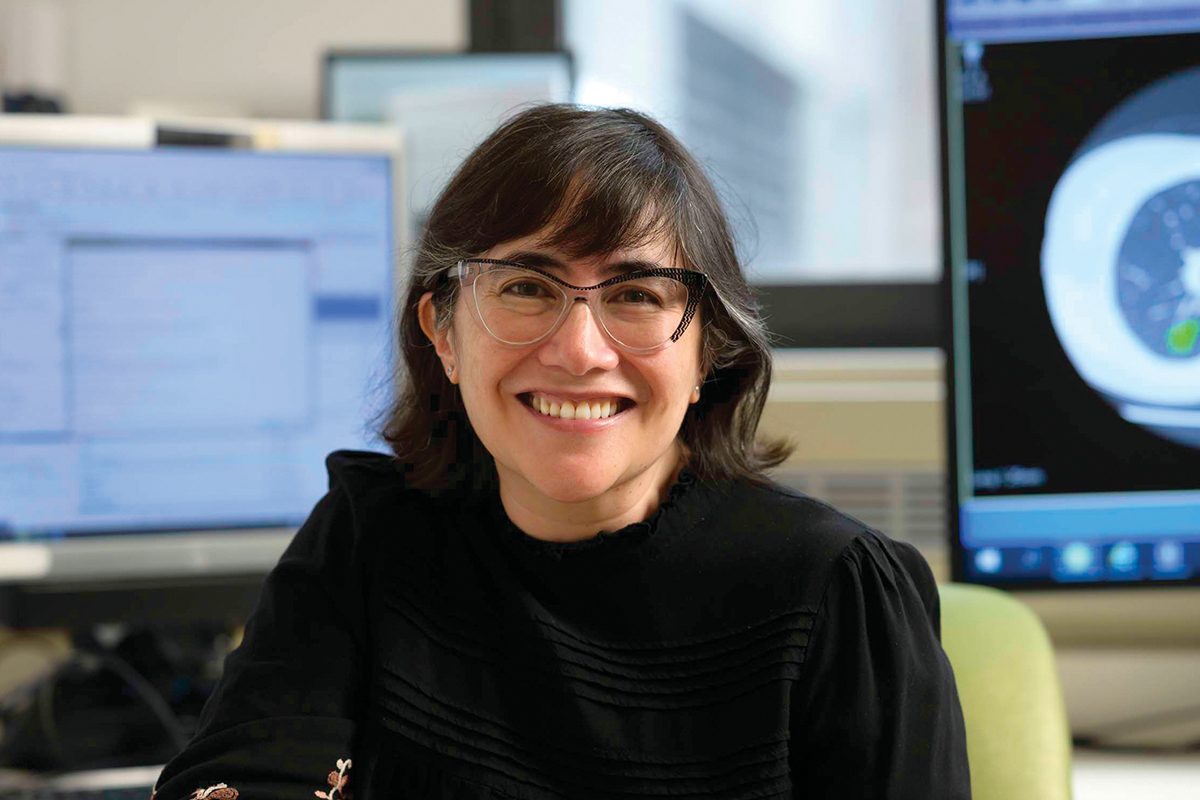
Pediatric oncologist Emily Slotkin is leading the first trial designed specifically for desmoplastic small round cell tumor — a type of sarcoma that affects mostly adolescent boys and young men.
Fortunately, Memorial Sloan Kettering Cancer Center was ready to offer him a clinical trial testing an experimental drug to treat his type of soft-tissue sarcoma — desmoplastic small round cell tumor (DSRCT) — which affects mostly adolescent boys and young men.
“We opened this trial in the pediatric and adult sarcoma services at the same time so that all of the sarcoma doctors at MSK could enroll their patients,” says pediatric oncologist Emily Slotkin, who is leading the study. “From the beginning, it was designed to be an adolescent and young adult (AYA) trial.” This is very unusual, because adult and pediatric patients usually participate in separate trials.
Saving Lives by Bridging the Age Gap
Nearly every advance in cancer care over the past several decades has happened because of clinical trials. But there’s an age barrier that’s made it hard for some patients to participate in and benefit from research. Clinical trials for “adult” cancers have required patients to be 18 or older, yet trials for “pediatric” cancers often stop at age 18 or 21. Patients who are neither a child nor an older adult can get caught in a gap that can be — quite literally — the difference between life and death.
“Adolescents and young adults with cancer are at risk for worse outcomes, compared with pediatric patients and also with middle-aged and older adult patients,” says hematologic oncologist Niloufer Khan, who treats AYA patients with lymphoma. “We believe one reason is that this group has historically been underrepresented in clinical trials.”
“The current healthcare system doesn’t do a great job of meeting the needs of AYA patients,” adds medical oncologist Viswatej Avutu, who specializes in treating AYA patients with sarcoma. “These patients tend to get lost between adult medical oncology and pediatric oncology.”
By Design: More Trials for Young Adult Patients
Irving was first diagnosed with DSRCT four years ago, after stomach pains sent him to a doctor near his home in Brooklyn. After his diagnosis, he came to MSK, where he received months of demanding chemotherapy and had several extensive operations to remove tumors from his abdomen. “I had already been through so much,” he says. “After being in remission for almost a year, I finally felt like I had my life back.”
After his cancer returned in early 2020, he joined Dr. Slotkin’s study — the first trial designed specifically for this kind of cancer — which adds an experimental drug called prexasertib to the chemotherapy drug irinotecan. The trial also includes patients with rhabdomyosarcoma, another rare sarcoma that affects children and young adults. The study’s co-leader is medical oncologist William Tap, who is one of the heads of the new Lisa and Scott Stuart Center for Adolescent and Young Adult Cancers.
The Stuart Center is focused not only on developing more trials for adolescents and young adults but also on making it easier for them to learn about and enroll in these trials — regardless of whether their primary doctor cares for children or adults.
This sarcoma trial is supported by Cycle for Survival, MSK’s team cycling event that raises money for rare cancers.
“Biologically, the number 18 is not relevant for anything. It’s especially irrelevant for cancers, like sarcomas, that exactly cross this bridge,” Dr. Slotkin says. “We can’t run good trials when we have doctors working in separate departments and patients siloed by age.”
Age requirements for enrolling in trials are changing. In November 2018, larotrectinib (Vitrakvi®) became the first targeted therapy to be approved by the US Food and Drug Administration (FDA) at the same time for children and adults who have cancers caused by TRK fusions. “We designed the trial so that from the get-go, patients of all ages were included,” says medical oncologist Alexander Drilon, Chief of MSK’s Early Drug Development Service.
When Dr. Drilon later helped design the trials for the drug selpercatinib (Retevmo®), he partnered with the drug company to ask the FDA to include patients as young as 12. That drug was approved in May 2020 for the treatment of certain lung and thyroid cancers; one use applies to adolescents who have a form of hereditary thyroid cancer.
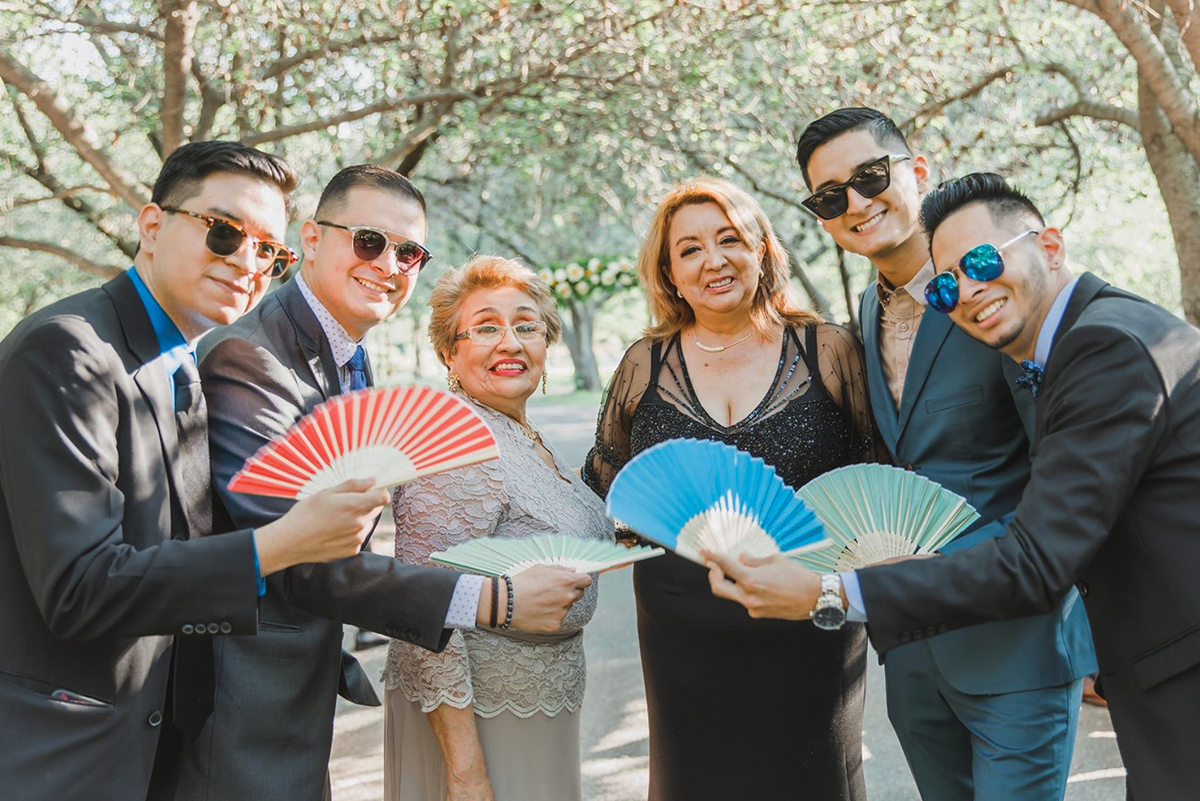
Irving (second from left) with his grandmother, mother, brothers, and cousin at the Brooklyn Botanic Garden in 2019.
Making It Easier for Generation Tech
It’s not enough to make trials available to young people. They must be convenient, too. Technology is making it simpler for many AYA patients to enroll in trials. “A lot of AYA patients see healthcare visits as an interruption to their daily lives,” Dr. Avutu says. He explains that many parts of clinical trials are moving into the virtual space. MSK’s AYA program is even looking at ways that patients can consent to clinical trial participation electronically so that they don’t have to physically be in the room.
“Another way we’ve been able to make trials more accessible is by offering more of them at our regional sites,” Dr. Khan says. “This allows us to capture a larger network of patients, including patients who are not able to travel into the city frequently.”
Although Irving’s trial requires frequent visits to Memorial Hospital for treatment, he still has been able to take advantage of technology. He uses the MyMSK Patient Portal to communicate with his care team and to get test results, and he has been able to have some of his appointments with Dr. Slotkin by telemedicine.
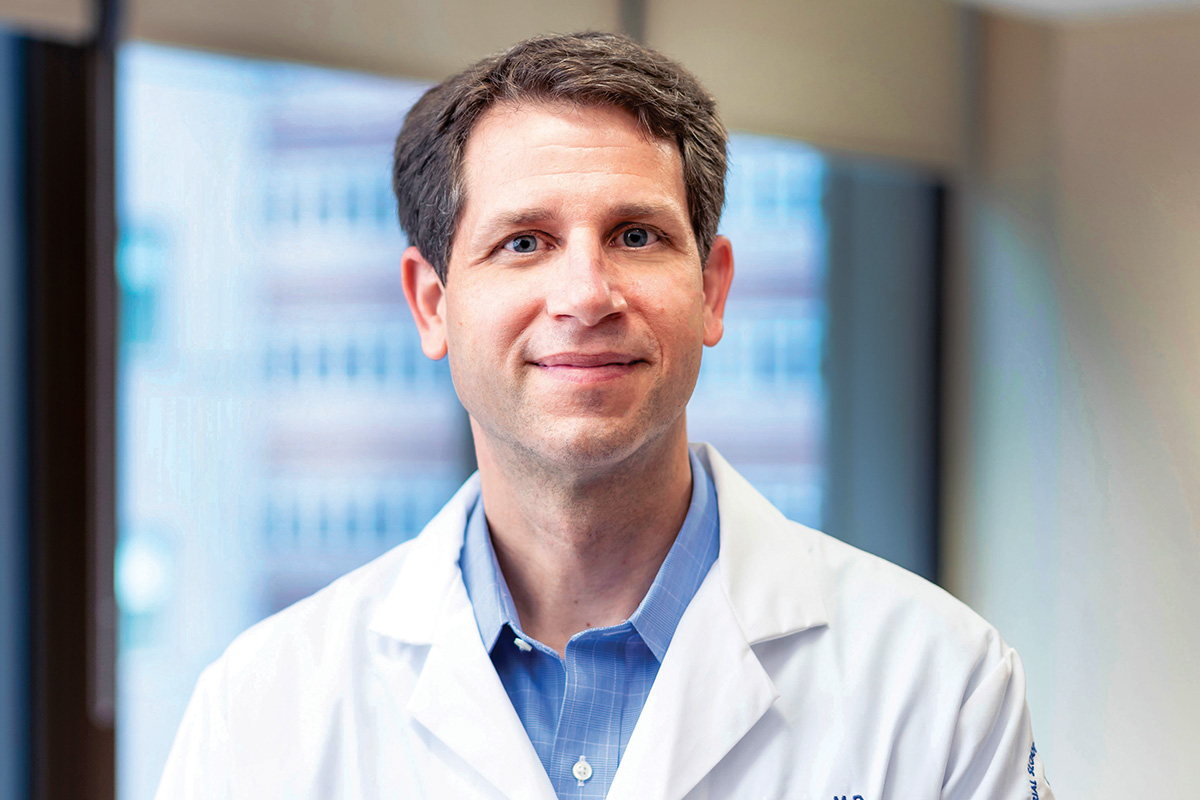
“What is unique about this program is it gives us an opportunity to develop a joint medicine and pediatric oncology fellowship so that we can really begin to train physicians specifically in adolescent and young adult medicine,” says William Tap, who is Chief of the Sarcoma Medical Oncology Service and co-director of the Stuart Center.
Irving’s Devotion
In March 2021, Irving’s father, who was living in Ecuador, died after a long battle with diabetes and liver disease. Then his mother developed severe COVID-19. Irving traveled to Ecuador to take care of his mother and one of his two brothers, who also had gotten COVID-19. Because he had been vaccinated in New York, Irving remained healthy. His mother and brother have now recovered.
“Dr. Slotkin helped me through all this, including putting a short pause on my treatment while I was with my family in Ecuador,” Irving says.
Right now treatment is keeping his cancer from growing. As one of the older patients with this kind of cancer, Irving has stepped up as a mentor for the younger patients he meets during his visits. “We’re going through similar stuff, so I’m someone they can talk to,” he says. “I always try to have good energy and a good vibe, and let them know that things are going to be okay.”
